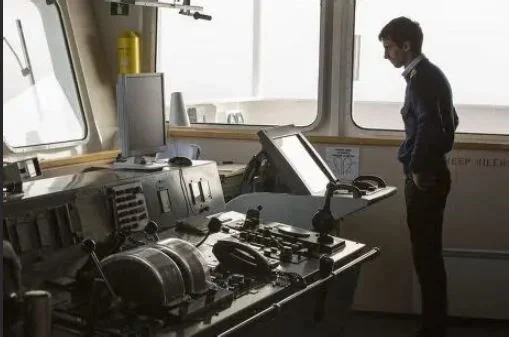Namaste!
If you’re reading this, chances are you’ve either joined as a cadet or you’re about to step onboard for your first sea job. First of all—congratulations. You’ve chosen a profession that’s not easy, but it’s one of the most rewarding journeys if you stick with it.
When I joined as a cadet years ago, I had no idea what was waiting for me. Honestly, I was nervous, confused, and a bit lost. Nobody really tells you the small, practical things. So today, I’m sharing a few points from experience—things I wish someone had told me on Day 1.
- You Don’t Need to Know Everything—Just Be Willing to Learn
Don’t act like a know-it-all. You’re new, and it’s okay to not understand everything. But don’t sit quietly in a corner either. Ask your seniors, observe carefully, take interest. Learn how things are done practically, not just in theory.
- Discipline is the Backbone of This Job
Be on time. Keep your uniform neat. Maintain personal hygiene. Follow the chain of command. This is not a corporate office. Onboard, discipline isn’t about being strict—it’s about safety, teamwork, and trust.
- Always Carry a Small Notebook
This is something simple but very useful. Write down how to start the generator, how to do a UMS test, radio phrases, or even the names of crew members. Later, these notes will help you big time—especially when you become a junior officer.
- Respect Every Crew Member
Doesn’t matter if it’s the cook, oiler, or captain—treat everyone with basic respect. You’ll get the same in return. And remember, you’ll learn more from an experienced AB than from a textbook.
- Don’t Try to Show Off – Stay Safe
I’ve seen cadets climbing without harness, walking into the engine room without earplugs—just to look tough. Don’t do that. Use proper PPE. Follow safety procedures. There’s no heroism in taking risks onboard. Real professionals stay safe.
- Make the Bridge Your Classroom
If you’re a deck cadet, don’t waste time sitting in your cabin. Go to the bridge during watch hours. Observe passage planning, radar usage, ECDIS settings, VHF procedures, and how senior officers take decisions. This is your real-life training ground.
- Use Free Time Wisely on Board – It Flies
Of course, you need rest. But don’t spend all free time on your phone or binge-watching shows. Do a little reading, learn something new. Even if you spend 15 minutes daily on navigation books or MS Excel, it’ll help in the long run.
- Take Initiative in doing various tasks (under supervision)
Don’t wait for orders. If you see tools lying around, arrange them. If you notice the gangway light is off, report it. Small things show that you’re alert and responsible. Seniors will take notice.
- It’s Okay to Make Mistakes—But Learn Quickly
We’ve all been there. Just don’t repeat the same mistake twice. And don’t blame others. Own up, learn, move on. Also, quietly observe what others do wrong—you’ll learn a lot that way too.
- This Is Not Just a Job – It’s a Way of Life
You’ll miss home. You’ll feel lonely. You’ll question your choices sometimes. But you’ll also see the world, earn respect, and grow into a strong, capable person. If you keep your head in the right place, this life can give you more than any desk job.
Final Words
To every cadet or junior seafarer—don’t give up when it gets tough. Speak up when you’re confused. Respect your seniors, learn from your juniors. And always remember: this profession is about responsibility, not just rank.
Stay safe. Stay humble. Keep learning


